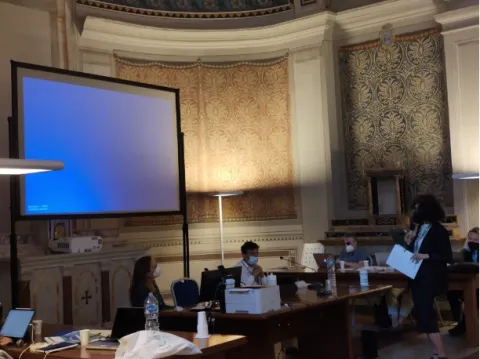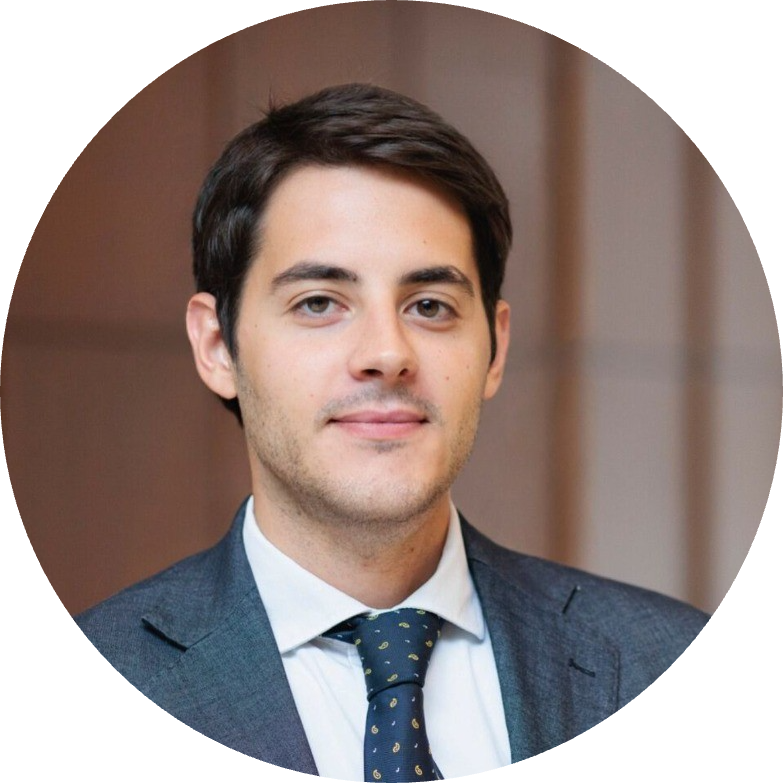
On June 13, prof. Laura Palazzani led a lecture on “Nudging and bioethics”. The latter as part of the summer school on “Law&Economics and Ethics of Markets and Regulation” (co-organized by EMLE in Rome and the University of Arizona), and being among the Jean Monnet Chair activities.
Prof. Laura Palazzani is Full Professor in Philosophy of Law, member of UNESCO's International Bioethics Commission and member of the European Group on Ethics in Science and New Technologies at the European Commission.
The discussion focused on the intersection between nudge and bioethics, starting from the ethical analysis of the different theories on nudging (libertarianism, paternalism, and soft paternalism) and the relevant implications in bioethics discussion, especially on informed consent in research and public policies.
According to prof. Palazzani, nudges are to be considered a sensitive subject when it comes to research and can only be used in public health policies, but not as informed consent for clinical trials (see more here: https://bioetica.governo.it/en/opinions/opinions-responses/lifestyles-and-health-protection/; https://unesdoc.unesco.org/ark:/48223/pf0000367824).

One of the main topics tackled in relation to nudging was public health, in which society needs more citizens to be aware of the collective responsibility to maintain their health. This since the consequences of one’s illness are imposed over society as well.
Moreover, the debate also concerned the comparison between libertarians, who can be defined being against nudges, and paternalists, who focus on the ethics of protection. The result is an ideal setting characterized by a balance between autonomy and protection. In the latter, people should be able to make their own decisions, but should also have full information. Which is, however, impossible in several scenarios.
The roundtable, introduced by Prof. Nicoletta Rangone and prof. Matteo Rizzolli, ended with a Q&A session along with the audience: University of Arizona and LUMSA professors and EMLE, PhD, and undergraduate students.

Additional material:
- Laura Palazzani, Consenso informato alla ricerca clinica nell’ambito della pandemia CoViD-19: tra bioetica e biodiritto , BioLaw Journal - Rivista di BioDiritto: N. 3 (2020)
- Laura Palazzani, Informed consent for clinical research in the context of the Covid-19 pandemic between bioethics and biolaw: a general overview , BioLaw Journal - Rivista di BioDiritto: N. 2S (2021): Special Issue 2/2021
- Laura Palazzani, Fabio Macioce, Margherita Daverio, Valeria Ferro, Loredana Persampieri, New strategies for increasing participation of patients from diverse cultural and religious backgrounds in clinical trials , BioLaw Journal - Rivista di BioDiritto: N. 1S (2019): Special Issue 1/2019
- Laura Palazzani, Why informed consent requires attention once more?; e Clinical trials in the time of a pandemic: implications for informed consent , BioLaw Journal - Rivista di BioDiritto: N. 2S (2021): Special Issue 2/2021
- Laura Palazzani, Informed consent, experimentation and emerging ethical problems , BioLaw Journal - Rivista di BioDiritto: N. 1S (2019): Special Issue 1/2019
- Laura Palazzani, The impact of Covid-19 on informed consent , BioLaw Journal - Rivista di BioDiritto: N. 2S (2021): Special Issue 2/2021

Luca Megale
is a PhD Student at LUMSA University of Rome and tutor of the European Master in Law and Economics - EMLE (Rome term)
Submitted on Tue, 06/21/2022 - 15:09

